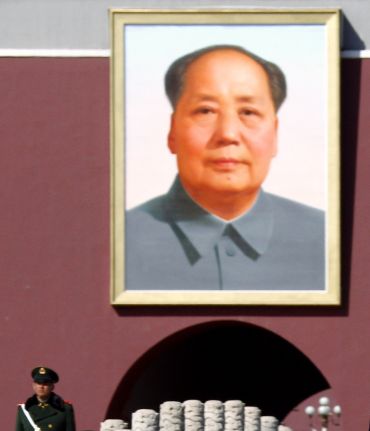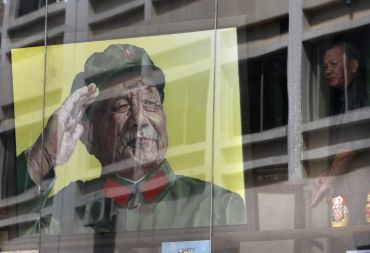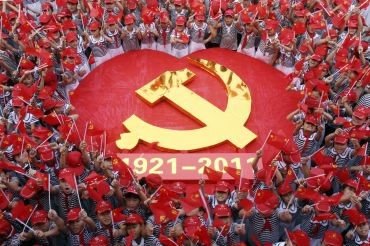 | « Back to article | Print this article |
'Mao's ways resulted in chaos in entire society'
He might be the founding father of the People's Republic of China, but the economic policies Mao Zedong followed have few takers today in the Communist Party of China which believes 'he did it all wrong'.
In fact, as it celebrates its 90th anniversary, the party says Mao's ways resulted in 'chaos in entire society' and it was a policy crafted out of the lessons learnt from his failures that have put China on a path to economic glory.
The CPC now attributes its success in stirring economic development in China in the past three and half decades to economic reforms propounded by Mao's successor Deng Xiaoping, and its ability to learn from past failures.
"Mao did it all wrong because he tried to develop the economy in a revolutionary way," Xie Chuntao (Xie), vice director of the party history department at the Party School of the CPC Central Committee told state-run Global Times.
Click NEXT to read further...
'Mao began implementing democracy his way resulting in chaos'
Xie said "Mao told his colleagues in Yan'an (his home province) that the Party must let the masses to supervise the government. He then began his way of implementing democracy, which resulted in chaos throughout the entire society".
The CPC, which had its ups and downs in its 62-year uninterrupted rule of China, will turn 90 on July 1 and the party is currently carrying out a massive campaign to revitalise itself by recreating its past spirit.
Xie said the liberalised atmosphere brought in by Deng has made CPC take decisions with objective reality.
"As Deng once said, the system is the most decisive factor. The bad have nowhere to hide in a working system and the good may turn bad when in a rotten system.
"Democracy, without surrendering to the whims of individuals, has to be implemented systematically within the frame of the law," he said.
"Nowadays, policies and regulations also have to be made in accordance with objective reality," Xie said.
CPC's new policy of 'Socialism with Chinese charterstics' brought in by Deng, was successful because it contained important lessons of Mao's era.
"Mao believed that he learned lessons from life, which he formulated into the Mao Zedong Thought," he said, adding that according to Deng's writings, the reform and opening-up policy simply wouldn't have existed without the lessons of the Cultural Revolution (1966-76).
Click NEXT to read further...
'Cultural Revolution resulted in killing of millions across China'
The Cultural Revolution aimed at purging the society of 'revisionists and reactionaries' resulted in the killing of millions of people across China.
"Deng was politically purged twice before finally reaching the top spot in the party, so he enjoyed the better understanding of mistakes than everyone else. Failures were followed by successes. To some extent, this was how Deng's theory was formed," he said.
Deng, a vice premier under Mao was virtually exiled as a 'fitter' at a tractor tool manufacturing unit in Nanchang along with his family where he spent several years in isolation before he was brought back years before Mao's death in 1976 after which he took control of the party.
Xie also took a dig at the western political system which advocates democracy.
"Those officials who betray the values of the party do have a huge impact. The party sets high standards for its members. That's why western parties have less pressure than the CPC, because they don't set themselves such high standards," he said.
"It is right that the party should be devoted to seeing public happiness, and that its members should be educated. However, it is also a fact that the standards are too high to be completely achieved," he said.

